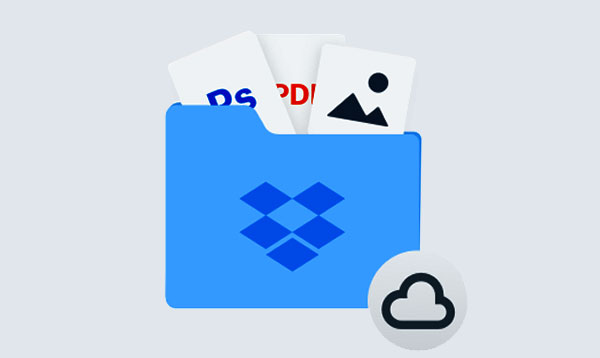Dropbox: User perks and common pitfalls
| October 13, 2020

Dropbox is a cloud-based hosting service that’s accessible on multiple devices. It gives users the ability to globally share and store files. Despite being a market leader, Dropbox has limitations to its search functionality and a 50GB file upload maximum. Compared to other storage software it can feel overpriced in relation to value.
Today we’ll consider some pluses and minuses when organizing your files and assets with Dropbox.
Free storage and things to consider
The entry-level plan is Dropbox Basic. Free to use, you can utilize a light 2GB of storage space as well as useful benefits like file syncing and shared links. An additional plus is the mobility of Dropbox Basic. You have the ability to access files on multiple devices and with several operating systems.
You can earn extra storage space on Dropbox through the referral of potential users and by contributing to community forums. But this is likely going to feel like a hassle during a busy working week, and modest additional storage is unlikely to last long. It’s also good to note that any bonus storage gained from forum contributions is largely based on the number of likes a post receives.

A lack of specific folder tab options and real-time note updates can make locating files challenging. Whether a start-up or established business, consideration of storage capacities when researching potential Dropbox alternatives is strongly advised.
Dropbox plans for all users
Dropbox advocates cutting through the clutter and working smarter. It also operates more as a single-user software than cross-departmental businesses may desire – a minus when sharing digital assets.
Two Dropbox plans:
Plus: $9.99 per month, annually
For the Plus plan, you can expect 2TB of storage and features such as:
- Unlimited links
- Password manager
- Remote wipe
Professional: $19.99 per month, annually
The Professional plan features include everything in the Plus plan, 3TB of storage and features such as:
- Priority chat support
- Smart sync
- Advanced sharing controls
Do be aware that a common criticism of Dropbox – regardless of how you utilize one of its plans – is the software’s lack of metadata search functionality. This is a feature better associated with a digital asset management solution.
While the Basic Dropbox plan is free, limited storage space makes it feel more like a trial account for business-minded users.
Security when choosing a cloud-based storage solution
In the last decade, Dropbox has experienced several security issues. Password leaks and problems with spam emails have been reported several times in recent years. Privacy policy updates have also faced criticism for removing end-user control over file accessibility and ownership. Regardless of the cloud-based software you choose, trusting your files are safely stored should be central to any decision you make.

In recent years, Dropbox has increased efforts to improve encryption in a means to alleviate concerns users may have about privacy leaks. Dropbox now offers a two-step verification as an extra layer of protection. When considering features such as digital signatures used for contracts, online security should also be at the forefront of any purchasing decision you make.
Digital asset management as an alternative
Dropbox enables businesses to be successful, however, it lacks file storage optimization and is unable to integrate a diverse range of third-party tools. This can make the software feel limited.

A digital asset management (DAM) system is a net positive investment. You need a storage solution that integrates leading third-party tools, has advanced meta-tagging and premium security. Canto does all of this, integrates seamlessly with Dropbox and provides storage which is fully scalable for your business needs.
